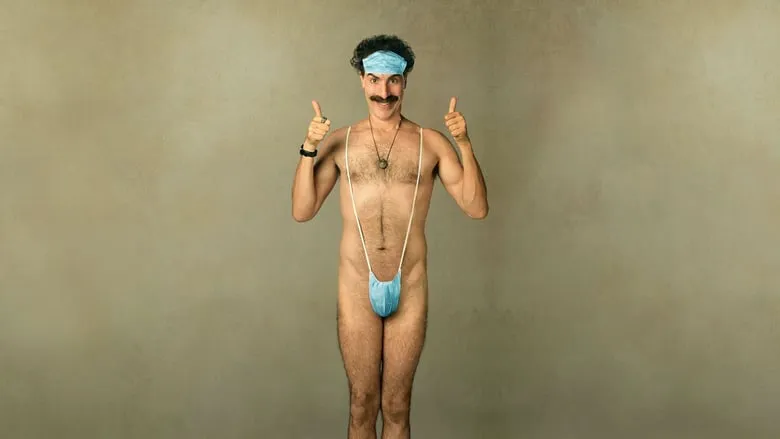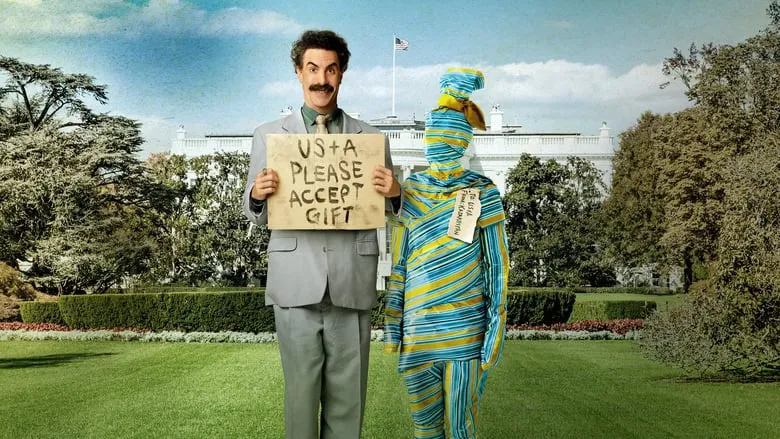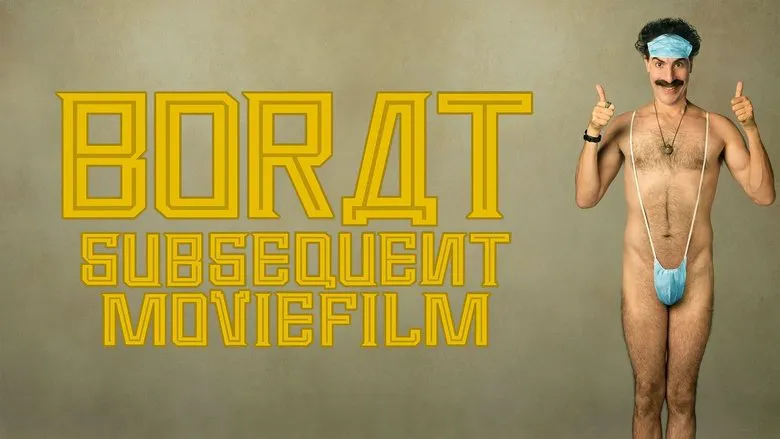Borat Returns: A Sequel That Falls Short of the Original’s Satirical Brilliance
The first “Borat” film famously humiliated Kazakhstan on a global scale, leading to the fictional journalist Borat Sagdiyev (Sacha Baron Cohen) being sentenced to a lifetime in a Gulag by the offended government. Now, 14 years later, a disgruntled Nursultan Nazarbayev, upset that Donald Trump won’t be his friend, releases Borat. His mission: travel to the United States and present the President with a gift – Johnny the monkey, the Minister of Culture of Kazakhstan, and the country’s most popular porn star. However, due to Borat’s past indiscretions near Trump Tower, it’s decided the “gift” should be delivered to Vice President Mike Pence. Upon arrival in the US, Borat discovers that Johnny has been eaten, and his 15-year-old daughter, Tutar, has stowed away in the delivery crate.

Following the phenomenal success of the original, Sacha Baron Cohen seemingly made the right call by retiring Borat. His subsequent characters failed to reach the same heights: first came “Bruno,” built on the same prank-based formula, followed by two unsuccessful, less improvisational comedies with new characters (“The Dictator” and “Grimsby”). Last year’s “Who Is America?” gave Cohen more freedom and returned him to his preferred arena of satirical interviews. Thanks to new, effective characters, unwavering commitment to staying in character, and the charged political climate of the US, the series became a hotbed of controversy and partially answered the question posed by its title. This quietly filmed “Borat” sequel, however, feels like a step backward for Cohen: just another scripted comedy that tarnishes the legacy of the groundbreaking original.

Lost Satirical Edge
The first film was not only a hilariously funny comedy but also a remarkable satire of post-9/11 America, a document of its time. It vividly portrayed a divided nation, attempting to maintain its trademark hospitality and tolerance while simultaneously viewing minorities with suspicion and paranoia. Cohen, a brilliant troll, made people believe that his country’s culture was built on antisemitism, homophobia, and misogyny. Most of the comedian’s victims calmly accepted Borat’s antics and silently condoned his medieval views. Only a few dared to challenge the Kazakh reporter. The sequel completely lacks this sincerity and cultural dialogue satire. The charming mythology surrounding Borat and his Kazakhstan has lost its believability, now presented in an overly grotesque and absurd manner. Even Cohen’s Borat accent sounds strained and parodic.

Still Funny, But Derivative
Nevertheless, “Borat 2” still functions well as a comedy – crude, brutal, and intentionally stupid. Hysteria is guaranteed, the best jokes will be screenshotted and quickly become memes, and certain episodes will enter Sacha Baron Cohen’s hall of fame. However, these moments are significantly fewer compared to the first film because the new movie is terribly derivative of Cohen’s previous projects. We saw driving lessons, etiquette lessons, and Borat’s daughter’s disastrous ball in the first film. Cohen skewered harmless Republicans much more effectively, harshly, and simply funnier in “Who Is America?”. Finally, the film’s most scandalous episode, Borat’s daughter’s interview with Trump’s lawyer Rudy Giuliani, which gradually moves into the bedroom, feels like an attempt to replicate the unsuccessful sex interview with Congressman Ron Paul from “Bruno.”
The purpose is clear: Sacha Baron Cohen’s political activism has forced him to resurrect his most famous character and throw him into the fray, only to deliver the celebrity-favorite call to vote at the end credits. “Borat 2” is needed only here and now, two weeks before the US presidential election, to further expose the American electorate and Trump’s allies. Will it succeed? Of course not. Everyone already knows that Republicans believe in idiotic conspiracy theories and are ready to sing along to any song criticizing Obama. Even Giuliani, caught red-handed, will likely only suffer a few shameful lines on his Wikipedia page. In a couple of months, the film will be ideologically outdated, and in a few years, it will be seen as a rather unsuccessful comedy that missed the main opportunity – to ridicule COVID-19 and COVID-dissidents.